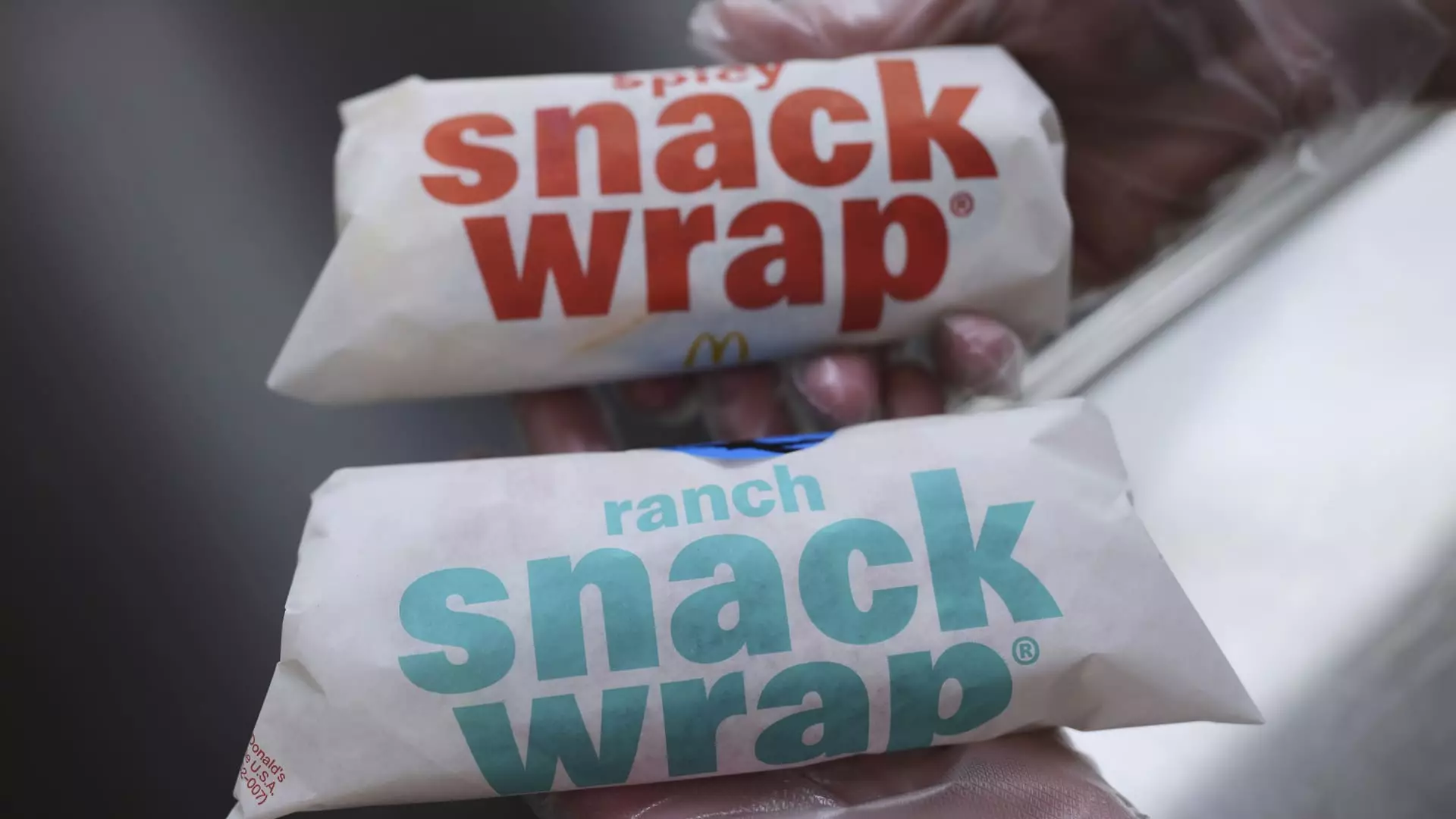McDonald’s recent decision to reintroduce the Snack Wraps after nearly a decade sparked widespread excitement among loyal fans and curious fast-food consumers alike. Initial data indicates a remarkably positive response, with a surge in customer traffic that surpasses expectations. Yet, beneath this surface-level triumph lies a complex narrative about the company’s true health and its capacity to sustain long-term growth. Is this revival a genuine turning point or simply a fleeting social media phenomenon, driven by nostalgia and marketing hype? From a critical perspective, the answer leans toward cautious optimism with an awareness of underlying vulnerabilities.
The Immediate Impact: A Short-Term Boost with Lingering Questions
The early sales figures captured by Placer.ai reveal that McDonald’s enjoyed double-digit increases in store traffic during the launch weekend, a feat not easily dismissed. U.S. same-store sales have reportedly risen by approximately 7% in the third quarter, a promising sign amid a period of otherwise sluggish performance. However, these numbers must be scrutinized carefully. Temporary shortages, like lettuce running out at some locations, highlight the logistical challenges that come with quickly scaling up a product revival. While McDonald’s handled the supply chain glitch competently, such hiccups reflect deeper operational pressures that could threaten sustained success if not managed properly.
Furthermore, the marketing campaign itself—though effective in reigniting interest—poses risks if relied upon solely for short-term gains. Promotions such as this can distort true consumer preferences, leading to inflated sales that may not persist once the novelty wears off. The key question remains: will customers continue to select the Snack Wraps after their initial enthusiasm diminates, or will this be a flash-in-the-pan?
Consumer Loyalty and the Illusion of Enduring Demand
The data from Numerator sheds valuable light on customer loyalty. An impressive 90% of survey respondents stated they would purchase the Snack Wrap again, and many are already frequent McDonald’s patrons, visiting the chain an average of 56 times this year. This highlights a core strength for McDonald’s: a dedicated customer base that can potentially support new menu items beyond temporary surges. However, one must also ask whether this loyalty is genuinely rooted in a long-term appreciation or if it is merely a result of increased exposure and minimal effort on the company’s part to deepen brand engagement.
Moreover, the emphasis on the ‘fan base’ that eagerly rushed to try the Wraps suggests a segment already predisposed to favor McDonald’s offerings. Relying heavily on existing loyalists might mask underlying weaknesses in attracting new customers or re-engaging the larger, more diverse demographic that has shown signs of fatigue with fast food in general.
Strategic Significance: Is This an Indicator of McDonald’s Adaptability?
From a center-leaning liberal perspective, McDonald’s resurgence through the Snack Wraps can be viewed as a positive sign of a company listening and adapting to consumer preferences. The focus on flavors like spicy and ranch, along with incorporating McCrispy Strips, indicates an effort to diversify offerings and respond to a demand for more flavorful, satisfying fast-food options. These moves suggest that McDonald’s recognizes the importance of evolving beyond monotony and embracing innovation aligned with the modern palate.
Nevertheless, the reliance on such limited-time promotions and menu reintroductions raises questions about the sustainability of McDonald’s strategic approach. Are they genuinely innovating to meet consumer needs, or merely chasing trends to stem declining sales? A more critical viewpoint might argue that such tactics serve as band-aids rather than solutions for deeper issues like health-consciousness, competition, and brand fatigue.
It’s worth noting that the chain’s recent promotional successes, such as the $5 meal deal and tie-ins like the Minecraft movie, demonstrate an understanding of blending entertainment with affordability. Yet, these strategies run the risk of commodification and superficial engagement, which may not foster genuine brand loyalty over time.
The Real Challenge: Transitioning from Temporary Wins to Sustainable Growth
Ultimately, McDonald’s must decide whether the current Snack Wrap revival is just an ephemeral social media stunt or a stepping stone toward a more resilient future. The recognition of customer loyalty and initial sales upticks are encouraging but insufficient in isolation. The company’s challenge is to leverage this momentum into meaningful innovation—perhaps through healthier options, transparency about ingredients, or more substantial menu diversification.
In a world increasingly skeptical of fast-food’s health implications and environmental footprint, McDonald’s cannot afford to rest on its laurels. The true test lies ahead: can it evolve into a brand that balances quick satisfaction with long-term relevance, or will these short-term wins prove to be mere flash-in-the-pan moments that fade as quickly as they appeared? The Snack Wraps’ return, while promising, is ultimately a wake-up call that highlights both McDonald’s resilience and the critical need for authentic, lasting adaptation in an ever-changing food landscape.


Leave a Reply